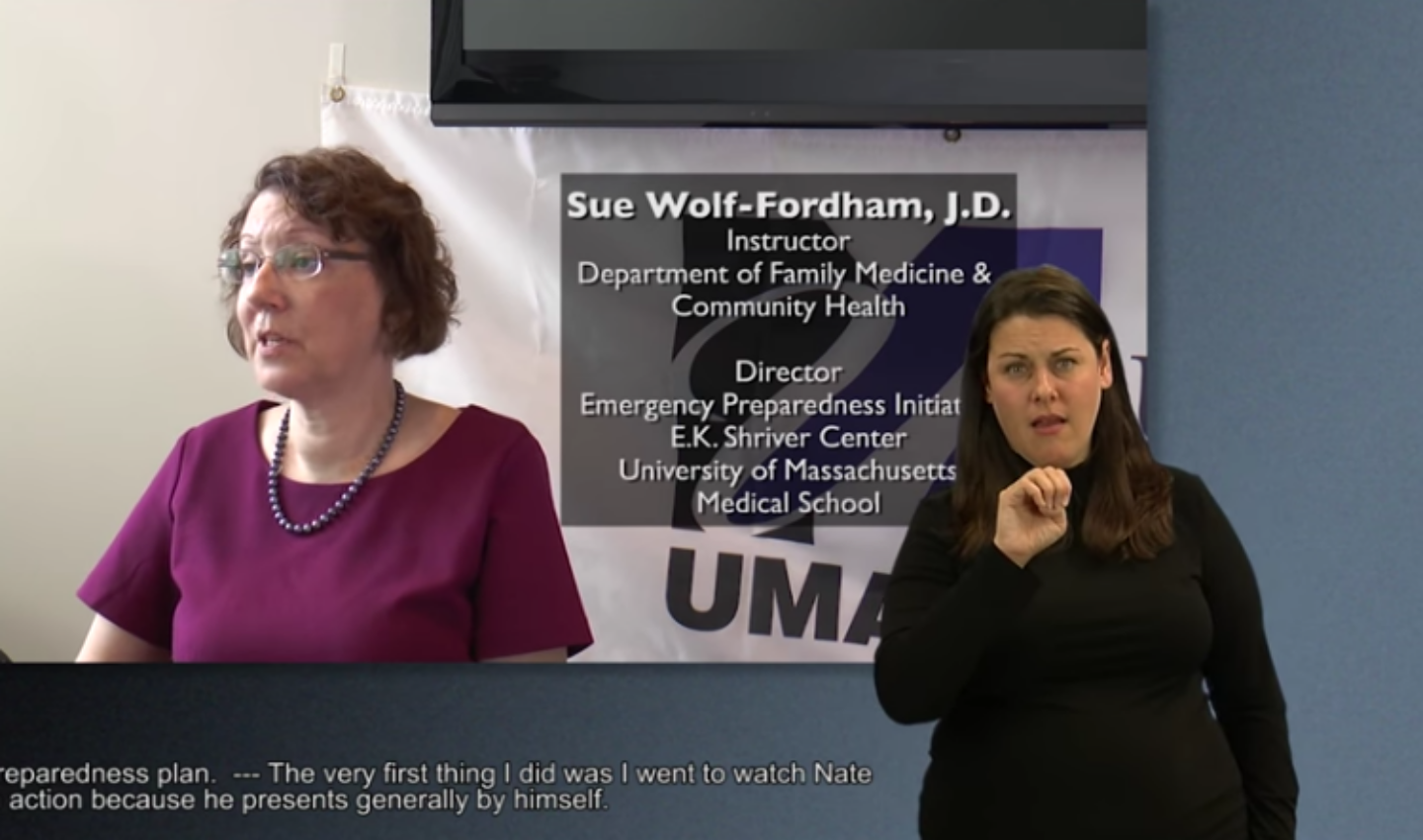The Eunice Kennedy Shriver Center’s emergency preparedness team is featured in a video by the National Center for Disaster Medicine & Public Health on health professionals and communities with access and functional needs working together to prepare for disasters.
The Emergency Preparedness and Response Initiative was launched in 2005 at the Shriver Center, a unit within UMass Medical Center, in the wake of two national disasters.
“The motivation was really the negative experiences people with disabilities had during 9/11 and Hurricane Katrina,” Sue Wolf-Fordham, JD, director of the Emergency Preparedness Initiative, said in the video.
The Shriver Center has a 40-year commitment to enhancing the quality of life for individuals with disabilities, with a focus on and expertise in developmental and intellectual disabilities, said Wolf-Fordham, who also is an instructor in Family Medicine and Community Health at UMass Medical School.
“Out of that grew this idea that if we really believe in whole community planning, which we do, then you want everyone in the community involved, and of course, people with developmental and intellectual disabilities are an important segment of the community,” Wolf-Fordham said in the video.
Nate Trull, consultant for the Shriver Center and self-advocate with a developmental disability, helped make the team’s self-preparedness instructions more accessible to people with disabilities. Fordham said Trull brings his lived experiences and his lived expertise to the team.
“Individuals with disabilities and other people are able to know the emergency preparedness plan and know what the outcome can be, then they can play a role in their own emergency preparedness plan,” Trull said in the video.
“Even ‘small’ emergencies can be large to a particular community and the impacts that they have,” Patrick Gleason, MA, data research specialist at the Shriver Center, said in the video. “I’ve definitely been more cognizant of that in my own life, particularly since I use personal care attendants to assist me with a variety of things and I’m dependent on them being able to arrive at my house to help and things like that.”
“I definitely think about all those issues much more deeply than I ever did before I started this work,” Gleason said.
The Shriver Center’s initiative trains first responders, public health organizations and local governments in equitable, efficient emergency planning and response for individuals with disabilities in Massachusetts and nationwide. Training includes online courses and in-person workshops. A toolkit for community health centers is being developed.
The video is part of the National Center for Disaster Medicine & Public Health Community Partnerships Video Series.


